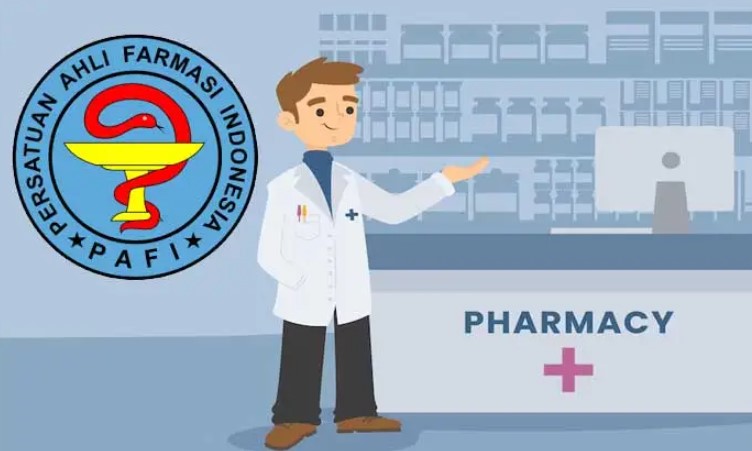PAFI – Public Health Initiatives You Should Know About

Public health initiatives play a crucial role in improving the overall well-being of communities. The PAFI Indonesian Pharmacists Association (Persatuan Ahli Farmasi Indonesia) is at the forefront of many such initiatives, leveraging the expertise and dedication of pharmacists across Indonesia to address pressing health concerns. In this blog post, we will explore some of the key public health initiatives spearheaded by PAFI that you should know about.
Introduction to PAFI’s Public Health Role
The PAFI Indonesian Pharmacists Association is dedicated to advancing the pharmacy profession while significantly contributing to public health. By promoting education, advocacy, and community service, PAFI aims to enhance the health outcomes of the Indonesian population. The association’s public health initiatives are designed to address a variety of health issues, from disease prevention to health education, ensuring that pharmacists play a pivotal role in improving public health.
Key Public Health Initiatives by PAFI
1. Disease Prevention Campaigns
Immunization Drives
PAFI organizes and supports immunization drives across Indonesia to prevent the spread of infectious diseases. These campaigns focus on increasing vaccination rates among children and adults, thereby reducing the incidence of vaccine-preventable diseases such as measles, hepatitis, and influenza.
Health Screenings
Regular health screenings are vital for early detection and management of chronic diseases. PAFI conducts free health screening events in various communities, offering services such as blood pressure monitoring, diabetes screening, and cholesterol checks. These events help identify individuals at risk and provide them with the necessary medical advice and referrals.
2. Health Education Programs
Community Workshops
Education is a cornerstone of PAFI’s public health initiatives. The association conducts workshops in local communities to educate the public on various health topics, including nutrition, hygiene, and chronic disease management. These workshops are designed to empower individuals with the knowledge they need to make informed health decisions. For further information, you can see here pafikebumenkota.org.
School Health Programs
PAFI collaborates with schools to implement health education programs aimed at children and adolescents. These programs cover essential topics such as personal hygiene, healthy eating habits, and the dangers of substance abuse. By targeting young people, PAFI aims to instill healthy habits early on.
3. Pharmacy-Based Public Health Services
Pharmacists are uniquely positioned to provide essential public health services due to their accessibility and expertise. PAFI Indonesian Pharmacists Association recognizes the critical role that pharmacists play in the community and has developed several pharmacy-based public health services to enhance patient care and improve health outcomes. Here are the key initiatives under this category:
Medication Therapy Management (MTM)
Optimizing Medication Use: Medication Therapy Management (MTM) is a cornerstone of PAFI’s pharmacy-based public health services. MTM involves comprehensive reviews of all medications a patient is taking, with the goal of optimizing therapeutic outcomes and minimizing adverse effects. Pharmacists work closely with patients to ensure they understand their medication regimens and take their medications correctly.
Personalized Care: Pharmacists provide individualized care plans tailored to each patient’s specific needs. This includes adjusting medication doses, identifying and resolving drug-related problems, and providing education on proper medication use. By focusing on personalized care, pharmacists help patients manage chronic conditions more effectively.
Improving Health Outcomes: Through MTM, pharmacists help reduce hospital readmissions, improve adherence to medication regimens, and enhance overall patient satisfaction. This service is particularly beneficial for patients with complex medication schedules, multiple chronic conditions, or those taking high-risk medications.
Smoking Cessation Programs
Comprehensive Support: Smoking cessation programs offered by PAFI provide comprehensive support to individuals who want to quit smoking. Pharmacists deliver counseling sessions that address both the physical and psychological aspects of nicotine addiction. These sessions include strategies for coping with cravings, stress management techniques, and the benefits of quitting smoking.
Nicotine Replacement Therapy: Pharmacists guide patients on the appropriate use of nicotine replacement therapies (NRT) such as patches, gums, and lozenges. They also educate patients about prescription medications that can aid in smoking cessation, helping them choose the best option based on their individual needs and health status.
Success Stories: PAFI’s smoking cessation programs have helped numerous individuals successfully quit smoking and improve their health. By providing ongoing support and monitoring, pharmacists play a crucial role in helping patients achieve their goal of becoming smoke-free.
Health Screenings and Preventive Services
Regular Health Check-Ups: PAFI promotes the role of pharmacists in conducting regular health screenings to detect and manage chronic diseases early. These screenings include blood pressure monitoring, blood glucose testing, cholesterol checks, and BMI assessments. Early detection through these screenings can lead to timely interventions and better health outcomes.
Preventive Health Services: In addition to screenings, pharmacists provide preventive health services such as administering vaccines, conducting risk assessments for diseases, and offering lifestyle modification advice. These services help reduce the incidence of diseases and promote a healthier community.
Patient Education: Pharmacists educate patients on the importance of preventive care and healthy lifestyle choices. This includes guidance on diet, exercise, stress management, and the appropriate use of over-the-counter medications. By empowering patients with knowledge, pharmacists contribute to the overall improvement of public health.
Chronic Disease Management
Integrated Care: Pharmacists are integral to the management of chronic diseases such as diabetes, hypertension, and asthma. They work collaboratively with other healthcare providers to ensure a coordinated approach to patient care. This integrated care model helps improve patient outcomes and reduces the burden of chronic diseases.
Monitoring and Follow-Up: Pharmacists provide ongoing monitoring and follow-up for patients with chronic conditions. This includes regular assessments of medication efficacy, adjustments to treatment plans, and providing support for lifestyle changes. Continuous monitoring helps keep chronic diseases under control and prevents complications.
Educational Workshops: PAFI organizes educational workshops for patients with chronic conditions. These workshops cover topics such as medication adherence, managing symptoms, and preventing complications. By attending these workshops, patients gain valuable knowledge and skills to manage their conditions effectively.
PAFI pharmacy-based public health services underscore the critical role of pharmacists in improving community health. Through initiatives like Medication Therapy Management, smoking cessation programs, health screenings, and chronic disease management, PAFI ensures that pharmacists contribute significantly to public health efforts in Indonesia. By leveraging the expertise and accessibility of pharmacists, these services help create a healthier, more informed population.
4. Disaster Response and Relief
In times of crisis, the PAFI Indonesian Pharmacists Association plays a pivotal role in disaster response and relief efforts. By leveraging the expertise of pharmacists and collaborating with various stakeholders, PAFI ensures that essential healthcare services are provided to communities affected by natural disasters, emergencies, and public health crises. Here’s an overview of PAFI’s disaster response and relief initiatives:
Emergency Preparedness
Mobilizing Pharmacists: PAFI has established protocols to quickly mobilize pharmacists during emergencies. These protocols ensure that pharmacists are ready to provide essential services such as medication distribution, healthcare advice, and first aid. By being prepared, PAFI helps mitigate the impact of disasters on public health.
Training and Education: PAFI conducts training programs for pharmacists on emergency preparedness and disaster response. These programs equip pharmacists with the skills and knowledge needed to respond effectively during crises. Training covers areas such as emergency first aid, triage, and the management of pharmaceutical supplies during disasters.
Collaboration with Authorities: PAFI collaborates with local and national authorities to coordinate disaster response efforts. This collaboration ensures that pharmacists are integrated into the broader emergency response framework, allowing for a more efficient and effective deployment of resources.
Post-Disaster Health Camps
Setting Up Health Camps: In the aftermath of disasters, PAFI sets up health camps in affected areas to address the immediate healthcare needs of the population. These camps provide a range of services, including medical consultations, distribution of medications, and health screenings. The presence of health camps helps stabilize the health of communities and prevents further health deterioration.
Comprehensive Healthcare Services: PAFI’s health camps offer comprehensive healthcare services, including treatment for injuries, management of chronic conditions, and mental health support. By providing a holistic approach to healthcare, PAFI ensures that all aspects of health are addressed during the critical post-disaster period.
Community Outreach: Health camps also serve as a platform for community outreach and education. Pharmacists at these camps provide information on disease prevention, hygiene practices, and other health-related topics. This education helps communities adopt healthier behaviors and reduce the risk of disease outbreaks.
Ensuring Access to Medications
Distribution of Essential Medicines: One of the primary roles of pharmacists during disasters is to ensure the distribution of essential medicines. PAFI coordinates with pharmaceutical companies and healthcare providers to secure supplies of medications and distribute them to those in need. This ensures that patients continue to receive necessary treatments despite the disruption caused by disasters.
Medication Management: Pharmacists assist in managing medication supplies during disasters, including the proper storage, handling, and dispensing of medications. They also provide guidance on the appropriate use of medications and address any concerns or questions from patients. Effective medication management helps prevent shortages and ensures the safety and efficacy of treatments.
Support for Chronic Disease Management: For individuals with chronic conditions, access to medications and regular monitoring is crucial. PAFI ensures that patients with chronic diseases receive the medications and care they need during disasters. Pharmacists provide ongoing support and adjust treatment plans as necessary to accommodate the changing circumstances.
Mental Health Support
Addressing Psychological Impact: Disasters often have a significant psychological impact on affected individuals. PAFI recognizes the importance of mental health support and integrates it into its disaster response efforts. Pharmacists at health camps provide counseling and support to help individuals cope with stress, anxiety, and trauma.
Referral Services: In cases where specialized mental health care is needed, pharmacists refer individuals to appropriate mental health professionals. This ensures that those affected by disasters receive the comprehensive care they need to recover both physically and mentally.
Community Resilience: By providing mental health support, PAFI helps build community resilience. Strong mental health support systems enable communities to recover more quickly and effectively from the psychological impacts of disasters, fostering long-term health and well-being.
Research and Continuous Improvement
Data Collection and Analysis: PAFI collects data on the health impacts of disasters and the effectiveness of its response efforts. This data is analyzed to identify areas for improvement and to develop strategies for future responses. By continuously evaluating its disaster response initiatives, PAFI ensures that it remains effective and responsive to the needs of affected communities.
Sharing Best Practices: PAFI shares its experiences and best practices with other organizations and stakeholders involved in disaster response. This collaboration helps improve overall disaster preparedness and response efforts, contributing to better health outcomes in future emergencies.
PAFI’s disaster response and relief initiatives demonstrate the critical role of pharmacists in emergency situations. Through emergency preparedness, post-disaster health camps, ensuring access to medications, mental health support, and continuous improvement efforts, PAFI provides essential healthcare services to communities in need. By leveraging the expertise of pharmacists and collaborating with various stakeholders, PAFI helps mitigate the impact of disasters and supports the health and well-being of affected populations.
Conclusion
PAFI Indonesian Pharmacists Association plays a vital role in advancing public health through a variety of impactful initiatives. From disease prevention campaigns and health education programs to pharmacy-based services, disaster response efforts, and collaborative projects, PAFI demonstrates a steadfast commitment to improving community health across Indonesia.
By leveraging the expertise and accessibility of pharmacists, PAFI addresses critical health issues and promotes healthy behaviors among the population. The association’s efforts in immunization drives, health screenings, medication therapy management, and smoking cessation programs have significantly contributed to reducing disease burden and enhancing quality of life.
In times of crisis, PAFI’s swift response and establishment of health camps provide essential healthcare services and support to communities affected by disasters. Pharmacists not only ensure access to medications but also deliver vital mental health support, contributing to community resilience and recovery.
Moving forward, PAFI continues to innovate and collaborate with government agencies, NGOs, and healthcare professionals to strengthen public health systems and advocate for policies that benefit the health and well-being of all Indonesians. By staying informed and engaged with PAFI’s initiatives, individuals can actively participate in efforts to create a healthier and more resilient nation.
For more information about PAFI’s public health initiatives or to get involved, visit the official PAFI website and join in the mission to promote health equity and improve healthcare outcomes nationwide. Together, we can make a significant difference in the lives of individuals and communities across Indonesia.







